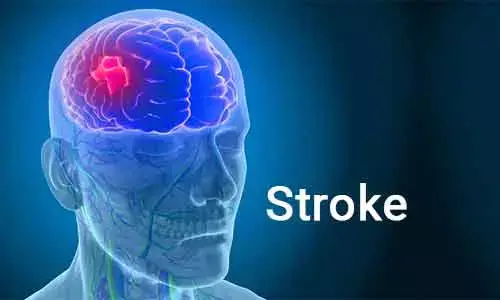- Home
- Medical news & Guidelines
- Anesthesiology
- Cardiology and CTVS
- Critical Care
- Dentistry
- Dermatology
- Diabetes and Endocrinology
- ENT
- Gastroenterology
- Medicine
- Nephrology
- Neurology
- Obstretics-Gynaecology
- Oncology
- Ophthalmology
- Orthopaedics
- Pediatrics-Neonatology
- Psychiatry
- Pulmonology
- Radiology
- Surgery
- Urology
- Laboratory Medicine
- Diet
- Nursing
- Paramedical
- Physiotherapy
- Health news
- Fact Check
- Bone Health Fact Check
- Brain Health Fact Check
- Cancer Related Fact Check
- Child Care Fact Check
- Dental and oral health fact check
- Diabetes and metabolic health fact check
- Diet and Nutrition Fact Check
- Eye and ENT Care Fact Check
- Fitness fact check
- Gut health fact check
- Heart health fact check
- Kidney health fact check
- Medical education fact check
- Men's health fact check
- Respiratory fact check
- Skin and hair care fact check
- Vaccine and Immunization fact check
- Women's health fact check
- AYUSH
- State News
- Andaman and Nicobar Islands
- Andhra Pradesh
- Arunachal Pradesh
- Assam
- Bihar
- Chandigarh
- Chattisgarh
- Dadra and Nagar Haveli
- Daman and Diu
- Delhi
- Goa
- Gujarat
- Haryana
- Himachal Pradesh
- Jammu & Kashmir
- Jharkhand
- Karnataka
- Kerala
- Ladakh
- Lakshadweep
- Madhya Pradesh
- Maharashtra
- Manipur
- Meghalaya
- Mizoram
- Nagaland
- Odisha
- Puducherry
- Punjab
- Rajasthan
- Sikkim
- Tamil Nadu
- Telangana
- Tripura
- Uttar Pradesh
- Uttrakhand
- West Bengal
- Medical Education
- Industry
High blood sugar increases hemorrhage risk in stroke patients: Study

Netherlands: High-serum blood sugar on admission increases risk of intracranial hemorrhage in stroke patients who underwent endovascular treatment, finds a recent study in the AHA journal Stroke. Also, it is associated with poor functional outcome.
Increased admission glucose is a predictor of poor outcome after stroke. Jonathan M. Coutinho, University of Amsterdam, Amsterdam, the Netherlands, and colleagues assessed the association between glucose concentrations and clinical outcomes in patients who underwent endovascular treatment.
For the purpose, the researchers selected consecutive adult patients from the MR CLEAN Registry. with a large vessel occlusion of the anterior circulation who underwent endovascular treatment and for whom admission glucose levels were available. The researchers assessed the association between admission glucose and the modified Rankin Scale score at 90 days, symptomatic intracranial hemorrhage and successful reperfusion rates.
Hyperglycemia was defined as admission glucose ≥7.8 mmol/L.
Of 3637 patients in the MR CLEAN Registry, 2908 were included. Median admission glucose concentration was 6.8 mmol/L (interquartile range, 5.9–8.1) and 882 patients (30%) had hyperglycemia.
Key findings of the study include:
- Hyperglycemia on admission was associated with a shift toward worse functional outcome (median modified Rankin Scale score 4 versus 3; adjusted common odds ratio, 1.69, increased mortality (40% versus 23%; adjusted odds ratio, 1.95), and an increased risk of symptomatic intracranial hemorrhage (9% versus 5%; adjusted odds ratio, 1.94) compared with nonhyperglycemic patients.
- The association between admission glucose levels and poor outcome (modified Rankin Scale score 3–6) was J-shaped.
- Hyperglycemia was not associated with the rate of successful reperfusion nor did successful reperfusion modify the association between glucose and functional outcome.
"Our results show that increased admission glucose is associated with poor functional outcome and an increased risk of symptomatic intracranial hemorrhage after endovascular treatment," concluded the authors.
The study, "High Admission Glucose Is Associated With Poor Outcome After Endovascular Treatment for Ischemic Stroke," is published in the AHA journal Stroke.
DOI: https://www.ahajournals.org/doi/10.1161/STROKEAHA.120.029944
Dr Kamal Kant Kohli-MBBS, DTCD- a chest specialist with more than 30 years of practice and a flair for writing clinical articles, Dr Kamal Kant Kohli joined Medical Dialogues as a Chief Editor of Medical News. Besides writing articles, as an editor, he proofreads and verifies all the medical content published on Medical Dialogues including those coming from journals, studies,medical conferences,guidelines etc. Email: drkohli@medicaldialogues.in. Contact no. 011-43720751


